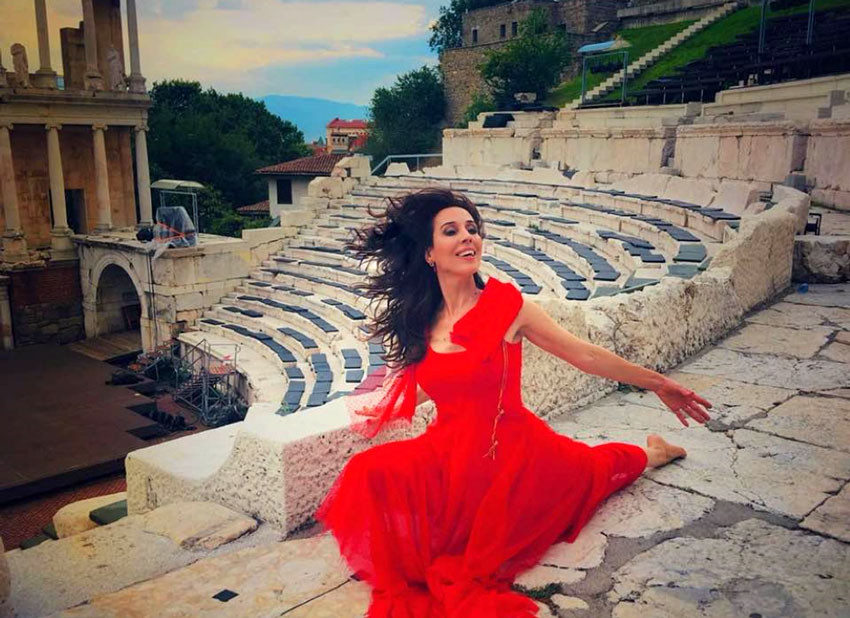She is one of the most colorful personalities in Bulgaria, known for her unique style and infectious positivism. As a doctor she has met hundreds of people, many of whom have interesting life stories. For 10 years Dr. Nedelya Shtonova has been collecting and searching for stories on the territories of four continents.
"When I decided to write a book, I wanted to explore the path to faith in 70 human lives that go through trials and tribulations seemingly in a paradoxical manner," Nedelya Shtonova says. None of these stories have an unfortunate ending. According to her, the average person today is quite ill, quite overweight and quite disillusioned. "I think that when we show people what they are actually capable of, they will have much higher self-confidence," Nedelya Shtonova says.
"It's a subconscious mechanism as each of us has mirror neurons," the author of "Kite to Paradise" continues. "If I see you smiling, maybe I'll smile too. If I see that you are aggressive and dissatisfied, this will subconsciously activate my emotional mimicry. The most precious gift a person can give to another is inspiration. That's why I collected these stories - they are inspiring because faith in them is stronger than logic. I believe that our cells can ‘eavesdrop’ on our thoughts and then these thoughts could make us ill, but also vice versa - they can activate the whole healing potential we are born with."

“I have become a neurologist because I have always wanted to decode what emotions are made of and what drives our behavior,” Dr. Shtonova has told Radio Bulgaria. She says that he has always kept to the philosophy that people who have the right attitude are more stable during crises in life. She decided to prove her idea using two fundamentally different approaches - scientific dissertation and art.
The topic of her dissertation at the Medical University in Sofia concerned the role of psychosocial risk factors for the occurrence and acceleration of central and peripheral atherosclerosis.
"Atherosclerosis is a process that leads to fat deposits in the inner layer of blood vessels and is actually the biggest killer, because when the integrity of a blood vessel is compromised, various diseases occur - strokes, heart attacks and peripheral arterial thrombosis," Dr. Shtonova says.
“Faith is something that makes the brain balanced, while a purposeless brain is a big problem. A brain that does not have strong supporting pillars of really meaningful things can be easily hacked by terrorist attacks such as resentment, hatred and aggression," Nedelya Shtonova says.
She also says that from the characters in her book she learned how grateful we should be and that we should be aware of the huge number of terrible things we have been spared from.

"Sometimes this awareness is missing and we behave in a spoiled manner, being dissatisfied over the pettiest things. Sometimes the vicissitudes of life come suddenly, destroying everything - just to awaken us with faith that is stronger than logic," she adds.
English: Alexander Markov
Photos: Nedelya Shtonova’s personal archive
As the BNR’s initiative “Awakener (enlightener) of the year 2024” enters its last stage, we present one of the most active volunteers from the Bulgarian community in Chicago, the US. Her name is Zhechka Geshovska, she was born in Dimitrovgrad in..
Twenty-seven years ago, a Bulgarian mountaineer left his country in the grip of social and economic instability to fulfil a long-held dream. With about $3,000 in his pocket and a backpack, Constantine Zlatev set off for the US to climb one of the..
Anabell Casaboff is one of the thousands of descendants of Bulgarians in Argentina who do not speak the language of their grandparents but Bulgaria is still present in their lives. She is a charming ballerina who dances and teaches..

+359 2 9336 661
